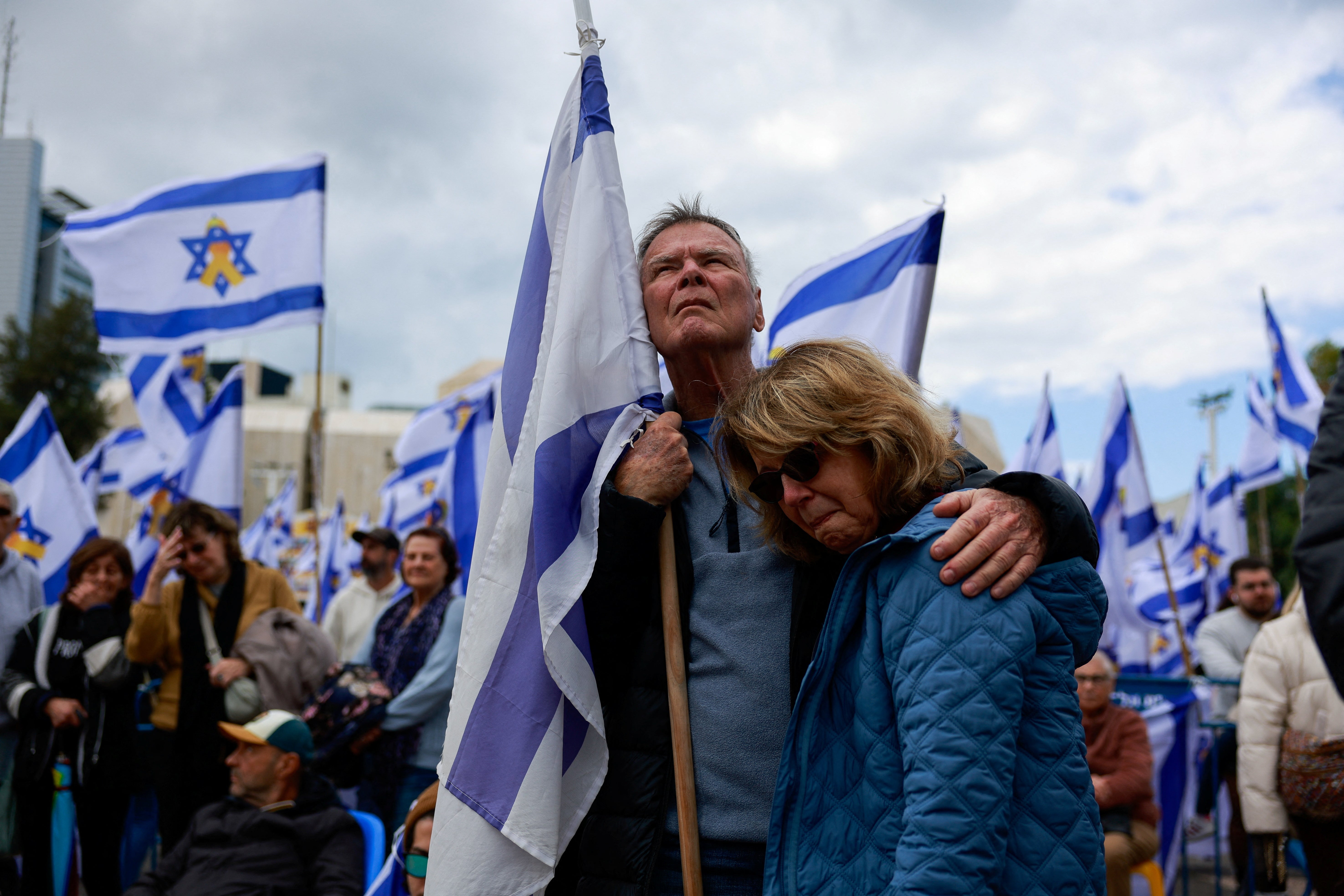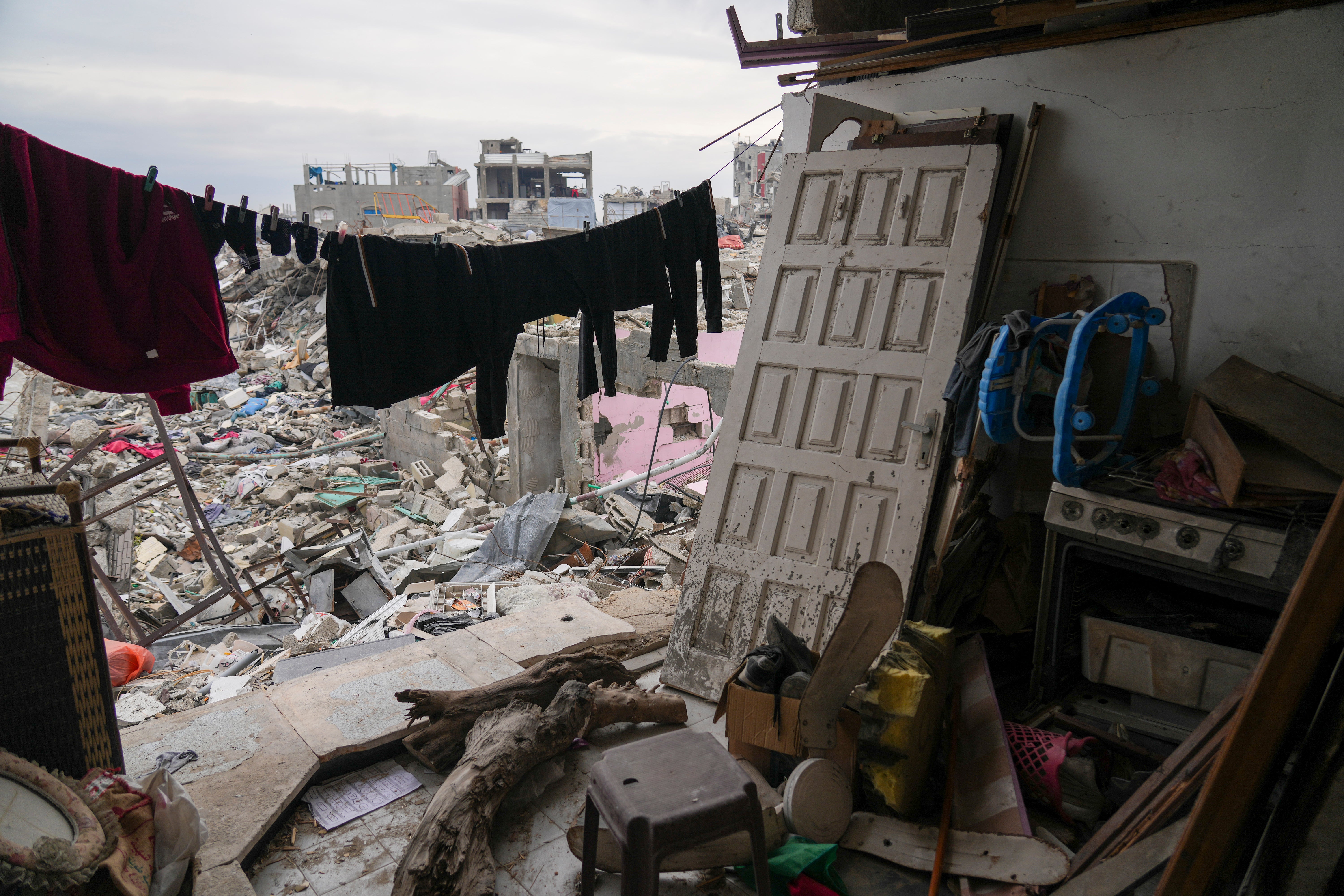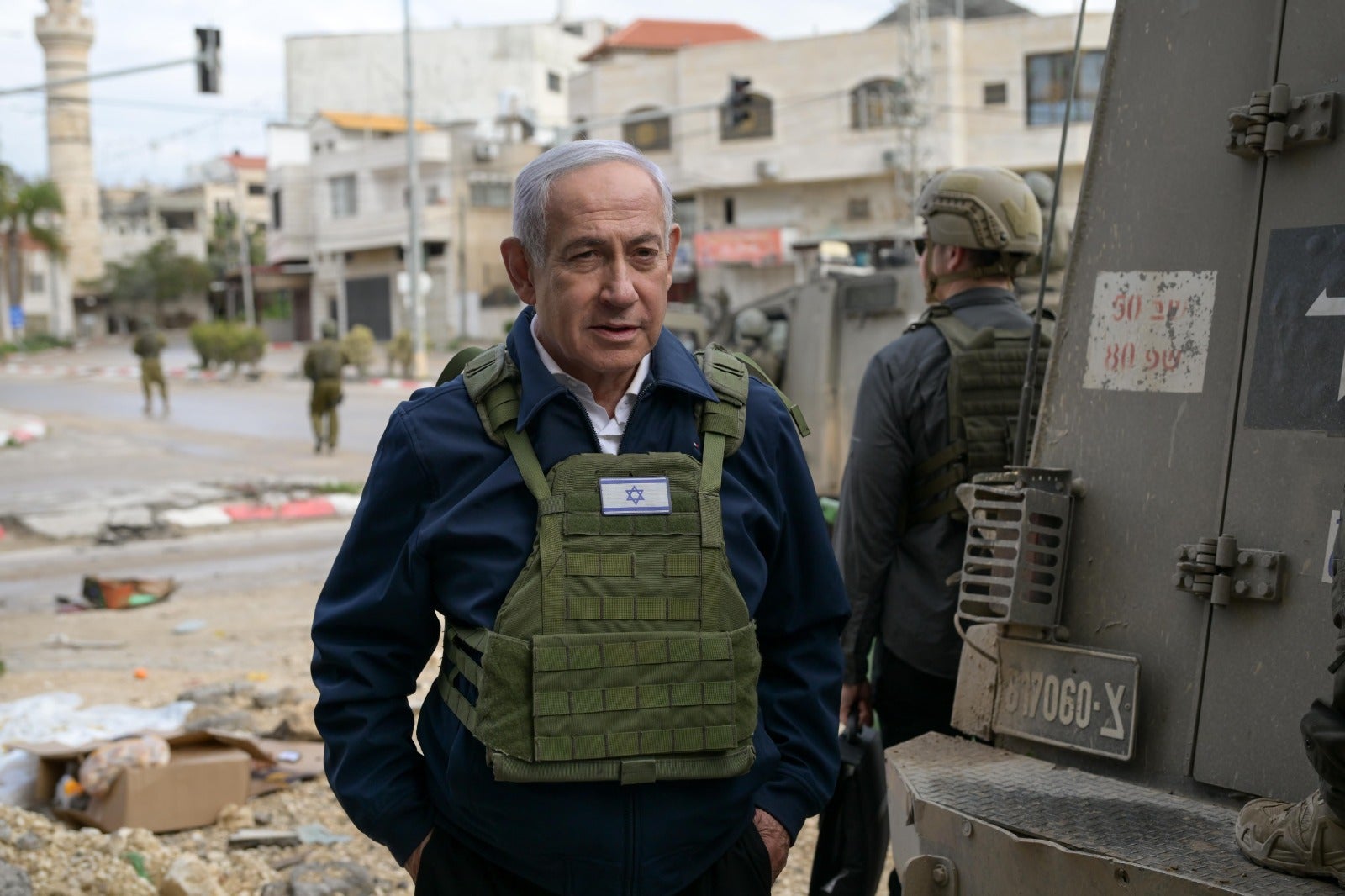Israel accused Hamas of handing over the remains of an unknown woman instead of an Israeli female hostage as bomb blasts rocked Tel Aviv in 24 hours of chaos that pushed the fragile ceasefire to the brink.
Israeli prime minister Benjamin Netanyahu vowed vengeance and warned the Palestinian militant group would pay “the full price” for what he called a “cruel and malicious violation of the agreement” after they failed to return the body of Shiri Bibas.
Hamas admitted there was the possibility of a “mix-up” but said it had "no interest in retaining any bodies", adding it had "demonstrated full compliance with the agreement".
On Friday night Hamas released a body it said was that of Shiri Bibas. Israeli medical authorities said forensic teams were preparing to examine the remains, which Hamas transferred via the Red Cross.
Palestinian militants filmed a terrified Ms Bibas clutching her two children, Ariel, four, and Kfir, nine months, as she was seized during their 7 October 2023 attack on southern Israel. Her husband Yarden was also abducted, but was released in an earlier exchange this month. Ms Bibas and her boys were later killed.
The remains of Ariel and Kfir, as well as Oded Lifshitz, who was 83 when he was taken, were handed back to Israel on Thursday as part of the deal and positively identified, the Israeli military said. However, they said the fourth body was not that of the boys’ mother, nor of any other hostage.
Citing a forensic examination of the remains, Daniel Hagari, the military spokesperson, also accused Hamas of killing the children with “their bare hands” in November 2023.
Hamas has repeatedly blamed Israel’s ferocious bombardment of Gaza for the deaths of Ms Bibas, her children and Mr Lifshitz. It denied intentionally handing over the wrong remains, adding it would “conduct a thorough review” of the allegations.
Tensions soared amid the crossfire of accusations, as a series of explosions on three buses rocked Tel Aviv on Thursday evening.
Calling it a “terror attack”, Mr Netanyahu travelled to the occupied West Bank on Friday and ordered the country’s military to ramp up operations “in response”.
Since the 7 October attacks, Israel has launched multiple military-grade incursions into Palestinian towns and cities across the West Bank, killing nearly 900 Palestinians, according to the United Nations. Palestinian health authorities said on Friday that the latest casualty was a 13-year-old Palestinian killed by Israeli forces during a raid on Jenin refugee camp.

There are concerns that all this could derail the hard-won ceasefire agreement, brokered by the US, Egypt and Qatar, which is due to bring the release of six more hostages on Saturday.
Hamas said it would release Eliya Cohen, 27, Omer Shem-Tov, 22, Omer Wenkert, 23, Tal Shoham, 40, Avera Mengistu, 39, and Hisham Al-Sayed, 36. There was no confirmation from the Israeli side.
Mr Mengistu and Mr Al-Sayed have been held since long before the war after entering Gaza on their own over a decade ago.
Hamas militants seized over 250 people and killed more than 1,200 during the deadly 7 October attacks on southern Israel. In retaliation, Israel launched the most intense bombardment of the strip in its history, killing more than 48,000 people, the majority women and children, and displacing more than 90 per cent of the population of around 2.3 million.
Rights groups, including Amnesty International and Human Rights Watch, have accused Israel of committing genocide against Palestinians in Gaza, with Amnesty concluding the level and speed of destruction in Gaza “has not been seen in any other conflict in the 21st century”.
Amid a soaring death toll and violence that was fast spreading across the region, a three-phase ceasefire deal was negotiated between Israel and Hamas. In the first six weeks, Hamas was expected to release 33 hostages, both dead and alive, in exchange for nearly 2,000 Palestinian prisoners and detainees. Much-needed humanitarian aid would flood into Gaza, and Israeli forces would begin to withdraw.

The second and third phases, during which the remaining hostages would be released and Israeli forces would completely withdraw from the territory, have yet to be negotiated.
So far, more than 180 hostages have been handed over, leaving 67 of those seized on 7 October still in Gaza, alongside three other hostages taken more than a decade ago. About half of them are believed to be alive.
But there are concerns the fragile deal could collapse at any moment, as emotions run high and both sides accuse each other of violating the terms.
Israeli military spokesperson Nadav Shoshani told The Independent the military does not “take for granted” that the deal will hold, adding “Hamas has been challenging the agreement and been challenging us”.
He said: "We've been very adamant throughout this whole process that we're committed to the agreement, but when they violate it, we will not accept it."

The Independent reached out to Hamas but has yet to receive a reply.
Several of the families of the hostages said in a joint statement on Friday that they were “shaken to the core by the horrifying findings” confirming the killings of the youngest captives, and urged the international community to “stand united in demanding their immediate return – before it is too late”.
Ofri Bibas-Levy, the aunt of the Bibas children, rejected Mr Netanyahu's vow to take revenge and instead blamed Israeli officials for failing to protect her relatives on the day of the attack and then abandoning them in captivity.
In a strongly worded statement, she said: “Shiri, Ariel, and Kfir were taken alive by a murderous terrorist organisation, and it was Israel's responsibility and obligation to bring them back alive. There is no forgiveness for abandoning them on 7 October, and no forgiveness for abandoning them in captivity.
"Prime minister Benjamin Netanyahu, we did not receive an apology from you in this painful moment.
“We are not seeking revenge right now. We are asking for Shiri."
She begged Donald Trump “to help Israel and our family complete this important mission”.
The US envoy for hostages Adam Boehler, meanwhile, described the release of the wrong body as "horrific" and a "clear violation" of the ceasefire.
"If I were them, I'd release everybody, or they are going to face total annihilation," he told CNN.







